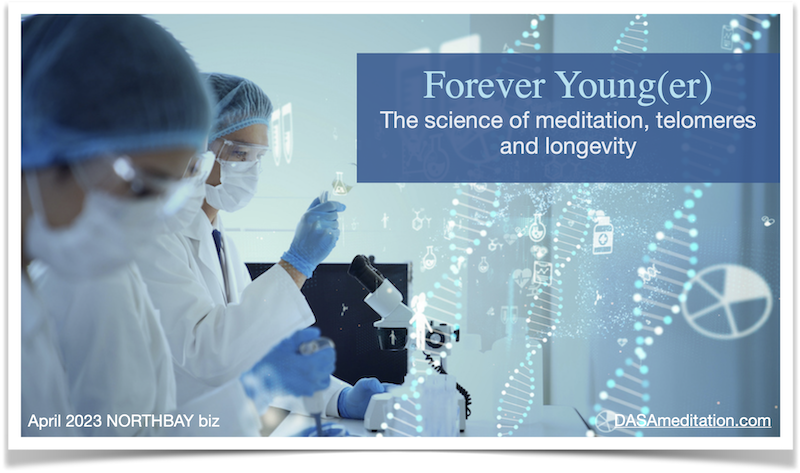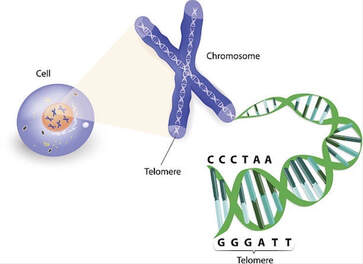—from the New York Times Bestseller, The Telomere Effect

Live Wise column
Read the full article.
by Lorraine Alexander
We know that aging is inevitable. Then why do some people appear noticeably younger and healthier than their age? One of the best anti-aging strategies may be meditation. Science cautiously proves the link between meditation and aging well, through the efforts of Elizabeth Blackburn, Nobel Prize-winner and co-author of the New York Times bestselling book, The Telomere Effect.
Telomeres and the science of longevity
In 2009, Dr. Elizabeth Blackburn, the former president of the Salk Institute for Biological Studies and a professor of biology and physiology at the University of California in San Francisco, was awarded the Nobel Prize in Physiology or Medicine for her study of telomeres. More specifically, Blackburn discovered how science accurately measures our biological clock on aging.
Age is not just a number. Meditators are an average of 12 years younger than their chronological age. Researchers at UCLA studied the brain health of meditators using an age group of 55; the study found meditators' brain health to be an average of 10 years younger than the non-meditators.
Companies like Apple, Google and Aetna embrace meditation and mindfulness programs for good reasons: employee productivity and wellness. High-performing companies understand that regular meditation enhances workflow and creativity. Meditators are less likely to partake in drugs or alcohol. They are generally less stressed, eat high-quality nutrition, care for their body, are naturally optimistic and enjoy quality sleep. Each meditation offers rejuvenation for the mind, body and spirit. Daily meditation brings out the best in employees with a favorable ROI, return on investment.
Stress, disease and accelerated telomere shortening
The Centers for Disease Control and Prevention of the United States estimates stress accounts for about 75% of all doctor visits. Stress causes disease. According to a 2008 study of life-event, stress and illness by Dr. Mohamed Razali Salleh, "The morbidity and mortality due to stress-related illness are alarming. Emotional stress is a major contributing factor to the six leading causes of death in the United States: cancer, coronary heart disease, accidental injuries, respiratory disorders, cirrhosis of the liver and suicide.”
“Women with the highest levels of perceived stress have telomeres shorter on average by the equivalent of at least one decade of additional aging compared to low-stress women," according to the National Library of Medicine’s report, “Accelerated Telomere Shortening in Response to Life Stress.” A later study found that a positive attitude played another vital role in longevity and health. The study included a group of mothers with the same stressors: Being a single parent and primary caretaker for a special-needs child. The mothers that embraced challenges with gusto had consistently longer telomeres, and women that were long-term caregivers had consistently shorter telomeres.
The science of stress reduction and meditation
Elizabeth Blackburn is intrigued by meditation. Typically, you wouldn't find a Nobel Prize winner exploring meditation. Blackburn's research offers unbiased examinations of various forms, including mindfulness and Vedic meditation. Consequently, her pioneering spirit opens the door for more peer-reviewed studies on stress and meditation.
Meditation is an ancient practice for the stress of modern times. Within a relatively short time, meditation magically melts away layers of toxic stress. Blackburn continues to study the long-term effect of meditation on telomeres. Her research suggests that a life lived stress-free and happy, with good nutrition, social support, quality sleep and the absence of tobacco use is a strong indicator of longer telomeres with a higher quality of life.
Save or print a pdf.

Contact Lorraine at: [email protected]






 RSS Feed
RSS Feed

